14 Essential time saving tips for maximum productivity ⌛
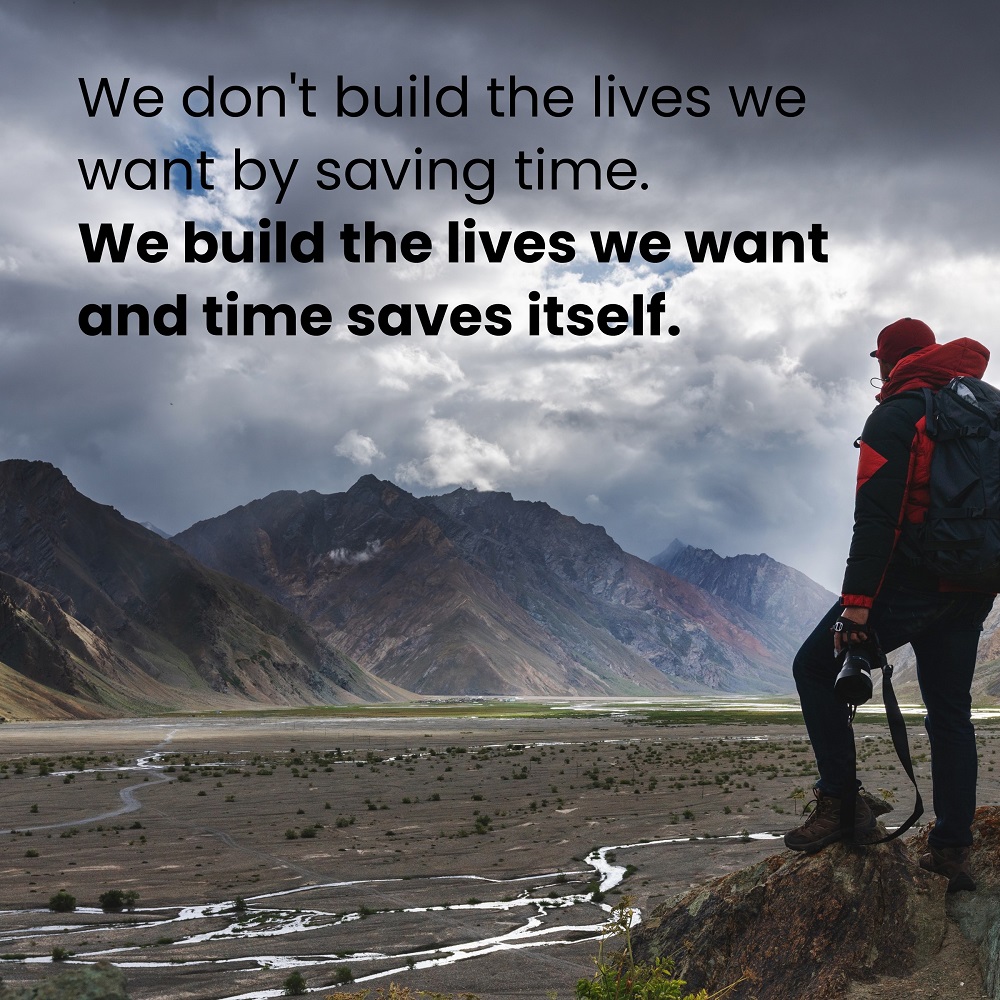
We are all trying to find more time in our lives to do more, but for some reason or another, it seems that everyone thinks that there is just not enough time and we are always looking to create more.
Well here I am going to share with you some techniques and tips on how to can find more time to do the things that are most important to you, but before doing that I need to enlighten you with a little secret: time is not the most important factor for being productive for three reasons:
Your time is limited, so allocating more time is not possible, however, focusing on your productivity is more important than focusing solely on creating more time.
The more you work, the less energy you have left, the less you can achieve. So you really need to learn to be more efficient, because even if you have unlimited time, you don't have unlimited energy.
Time is not a good metric for measuring productivity, it is what you decide to do with that time that matters the most.
Now that we have that out of the way, let's dig into some serious time management and productivity tips.
-
1. Daily highlight
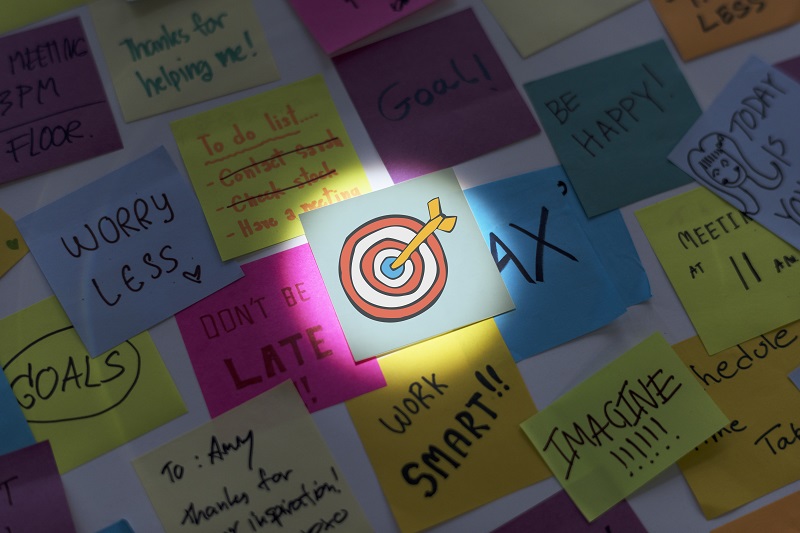
Create one main target that you want to achieve for each day.
You may have multiple targets for the day, but there needs to be one thing that you must absolutely achieve, and that needs to be the most important thing for you.
If you achieve everything that you wanted to do for that day, that's amazing, but you should at least achieve your day's highlight, that one target that defines your day as successful.
-
2. Plan

It is extremely important to write down a to-do list for the next day, next week, next month, and the whole year.
You can use paper and pen, a mobile app, desktop notes, etc. Whatever it is, make sure it is visible to you at all times.
Daily planning is the most important. Give yourself five minutes to write down what you want to achieve for the next day.
I know that sounds like tedious work, but it really isn't. Besides, who said that time management is easy, at least not in the beginning.
You may find it difficult at the start but you will get used to it and eventually will become automatic.
Eventually, you reach a stage where you don't have to write anything because you have already established your healthy habits.
-
3. Use dates and times
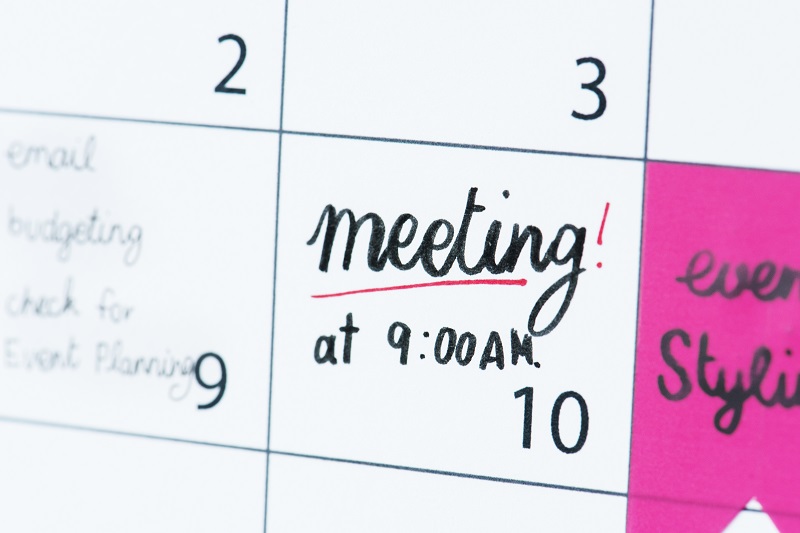
More important than creating a do-to list, is allocating a date and time for every activity that you want to do.
Not specifying the exact time for each activity will probably render your plan ineffective. You will probably start delaying everything early in the day until you have no time left to do anything.
-
4. Finish the important things first
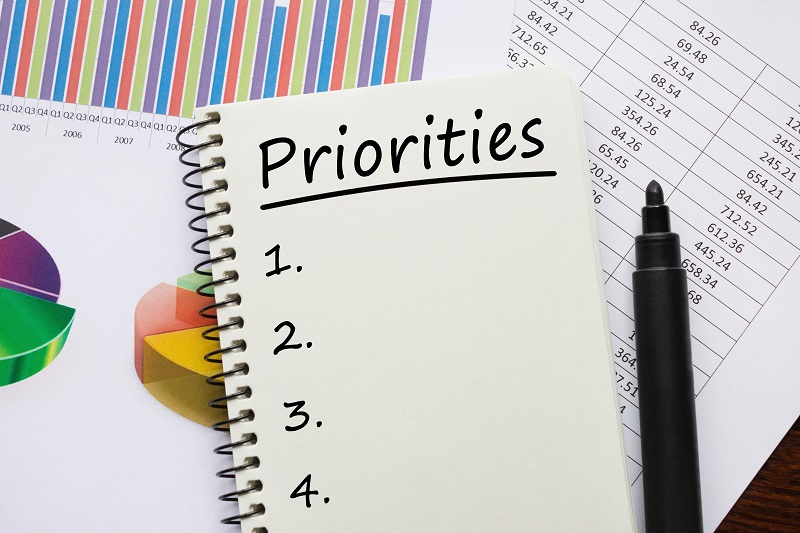
Always start with the most important things first. Finish them off before moving over to other things.
The philosophy here is that checking the most critical tasks off your list first will give you emotional and phycological relief for the rest of your day.
Knowing that you have completed what you consider most important will give you such a boost in confidence that will make you less stressed and more energized for the whole day.
Even if you don't achieve anything else during the day, at least you can sleep peacefully at night knowing that you achieved something important in the day.
-
5. Time is Elastic: Parkinson's Law

Parkinson's Law goes something like this: "Work expands to fill the time allocated to it."
What that really means is that if you decided that doing your laundary takes two hours even though it is a 10 minutes job, then you will somehow make that task take a lot of time than it really needs. You will perform the task much slower and with less energy in order to occupy the two hours you have allocated for that task.
You need to be realistic and honest about how much time each task takes.
Don't give a task more time than it deserves.
Put a time limit on tasks.
Ideally, the time you allocate to any task should shrink over time because you certainly get better once you repeat something for a considerable amount of times.
-
6. Challenge yourself by setting time to do something.

This easy and wonderful trick is a true time-saver and a performance accelerator.
Make things more interesting by challenging yourself into finishing them quicker than you think you can do.
If cleaning your place takes two hours, put a timer and try to beat that number.
It is an interesting exercise and makes you push yourself to the limit and achieve things faster than you normally do all while saving important minutes throughout your day.
-
7. Isolate yourself when doing the important stuff

For critical tasks that require 100% focus, isolate yourself from the outside world in any achievable way.
Minimize the distractions around you to the minimum possible in order to focus and work faster.
Distractions are one of the primary reasons why we can't finish tasks quickly or even complete them at all.
-
8. Delegate
Free up time by delegating less important things to others.

First, calculate your time's worth, that is the money you can earn per hour doing what you do best.
For example, let's assume that you make $30 dollars for an hour of work.
Let us also assume that a house cleaner charges $10 dollars per hour.
Doing the math, you will quickly find out that by cleaning your own house you essentially lose $20 ($30 - $10) per hour. In this case, it is better to get a maid and just use that time to do whatever generates your profit.
This is just one example of how you can delegate work to others to free yourself some really needed time.
Another example is a YouTuber who isn't so good at editing videos but is very good at creating content. Instead of wasting a whole day to edit a single video, he can hire a freelancer to do all the editing for him while he can focus on creating more content. He will be making much more money this way.
Not everything is about money, you may choose to go to the gym do something creational that will improve your health while you do delegate some work to others.
-
9. Manage your energy

I mentioned earlier that mornings are at the best times to do the most important things because that is when you have the most energy but that doesn't necessarily apply to everyone.
While there is a great incentive to finish important stuff first, some people just feel most energetic and motivated in the afternoons or late evenings.
See what works for you. The important thing here is to do the most important stuff when you are most focused.
matrix of Energy and importance. urgent and important martix Tasks can be grouped into 4 categories: urgent and important not urgent but important urgent but not important neither urgent nor important
-
10. Don't multi-task

Humans are terrible muti-taskers. We are not computers even though it seems that we do can more than one thing at a time.
Many studies have shown that humans can only really focus on one thing at a time. What appears to be multitasking is nothing but quick context switching. Context switching takes time and energy and decreases focus and efficiency.
If reading an article takes 30 minutes and watching a TV show takes 30 minutes, then doing both at the same time will probably take 90 minutes. Even after those 90 minutes, you might find out that you didn't really comprehend that article nor did you enjoy your favorite show. Better read the article totally focused and then just watch your show to completely enjoy it.
There are exceptions of course, if you are among the people who can truly multitask, good for you but for the majority of humans, that is not the case.
There are of course certain tasks that can be done at the same time, for example driving and listening to an audiobook, but that works because driving is automatic for most people. Both activities require attention and focus but they engage different parts of the brain, which allows for the two activities to work in parallel.
-
11. Pareto Principle: The 80-20 Rule
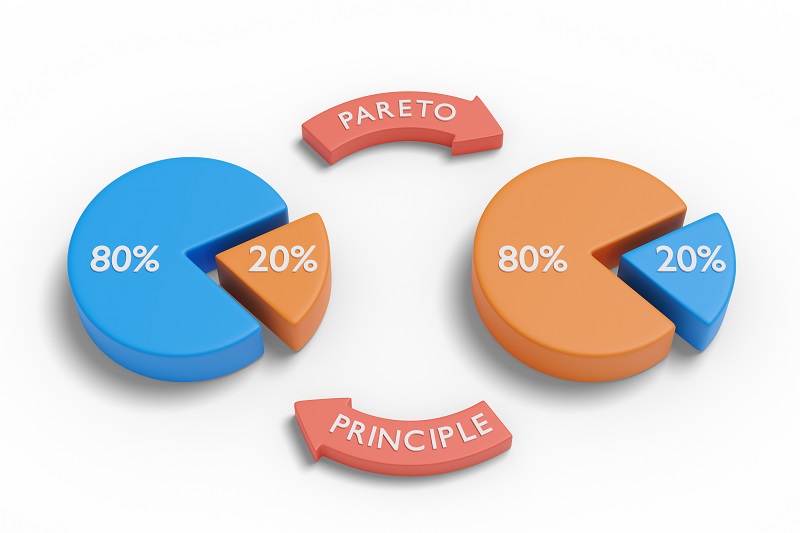
The 80-20 rule, also referred to as the Pareto Principle, was conceived by Italian economist Vilfredo Pareto who observed that 80% of the outcomes generally came from only 20% of the inputs.
What that really means is that only 20% of the things that you do are truly worth doing because they contribute to the majority of your prosperity.
That has been repeatedly observed in the business world but can be equally applicable to individuals.
The trick here is identifying that critical 20% that you need to focus on. It is more of an art than it is science but cab be approached scientifically. That is beyond the scope of this article. Much literature has been written about this topic, which I invite you to explore more.
-
12. Make the most of waiting times

We all have idle times during the day when are not actively doing anything when we can. Waiting for the bus to come, waiting at the dentist, sitting in the metro, etc.
If you are looking forward to becoming a master time manager, you need to learn to take advantage of these situations whenever you can. Productive doesn't necessarily mean work, it can be something fun.
If you take the metro to work every day, you can choose to watch your favorite show during that time so that when are at home you can use that time to do something even more useful, like work out for example or study.
-
13. Shut down notifications

Shut down all unimportant notifications on your phone and laptop. If it is really urgent, they will call you.
You need to resist the temptation to pick up your phone every time your it beeps. Just silence all notifications and allocate specific times of the day to respond to all, typically not more than three-time.
For example, I only check my emails three times a day: 9 AM, 12 PM, and 4 PM. That's it. That might not be feasible but you get the point. Don't check your inbox anytime your phone beeps. Do it just once an hour.
-
14. Batch similar tasks together

The idea here is to minimize context switching. Examples:
Have all of your meetings at close times and close locations as much as possible.
Call everyone that you need to call one after the other.
Check all your notifications (email, WhatsApp, SMS, etc..) in the same time slot and respond to everyone during that time. Call that slot the notification processing slot.
Do all your outdoor activities in one go: gym, groceries, etc. Avoid going out multiple times.
Those were just small examples of how to batch similar tasks together for maximum efficiency and time-saving.

























